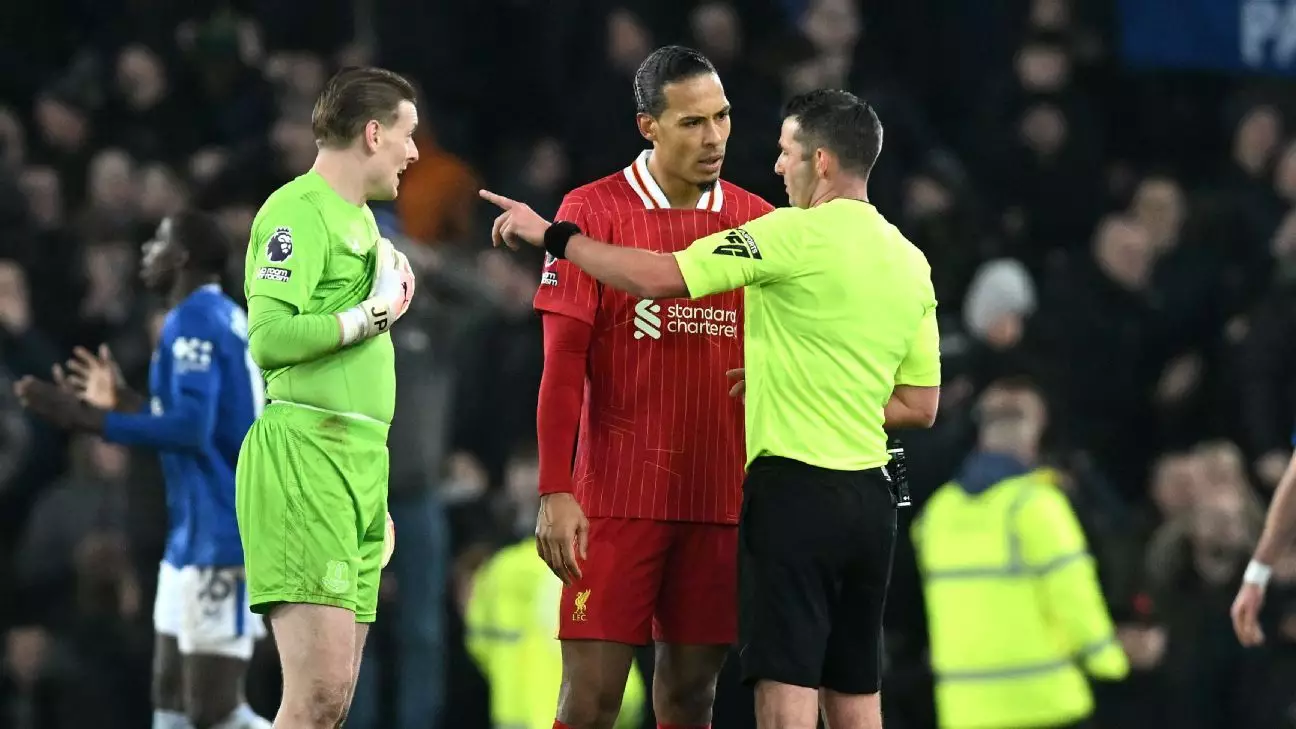The recent Merseyside derby between Liverpool and Everton was anything but ordinary, culminating in a thrilling 2-2 draw characterized by an array of drama. The contentious clash showcased the fierce rivalry between the two clubs, but the match concluded with a scene that will likely be talked about for weeks to come. The encounter reached its peak intensity when Everton’s James Tarkowski netted a stunning volley in the dying moments, igniting jubilation among the home fans. However, the elation soon descended into chaos as players and coaches found themselves entangled in a heated altercation.
In the aftermath, Liverpool’s captain Virgil van Dijk openly criticized referee Michael Oliver, suggesting that he “lost control” of the match. This sentiment highlights a significant concern regarding officiating in high-stakes encounters. The chaos that ensued after the final whistle, particularly involving Abdoulaye Doucouré and Curtis Jones, pointed to a broader issue: a lack of effective management from the officiating team. As tension escalated, Oliver resorted to showing multiple red cards—two to players, one to head coach Arne Slot, and another to assistant coach Sipke Hulshoff—furthering the sense that the referee was struggling to maintain order. Van Dijk’s remarks illustrate the players’ frustration, emphasizing that both teams could share responsibility for the fracas but also underlining the role of the referee in managing emotional highs and lows during such a fierce rivalry.
The emotional upheaval was palpable not just on the pitch but throughout Goodison Park, as fans remained invested in every twist and turn. Everton’s manager, David Moyes, acknowledged the charged atmosphere, noting how the match’s intensity aligned with the notable history of the Merseyside derby, likely marking the end of an era at Goodison Park. Despite the rough edges—Moyes described the game as not the cleanest or most aesthetically pleasing—it served as a reminder of the enduring passion tied to football rivalries. Moyes framed the encounter as a gritty testament to Everton’s resolve, asserting that they rose to the occasion against a top-tier side and successfully narrowed the talent gap that usually favored Liverpool.
As both teams navigate through the implications of this fiery match, questions remain about how they will move forward from the fallout. The red cards issued will lead to suspensions that can impact team chemistry in subsequent games. For Liverpool, what does this mean for their aspirations for the season? And for Everton, can they build upon this emotionally charged performance to create consistent results against formidable opponents?
In the end, this chaotic Merseyside derby did more than just entertain; it underscored the raw emotions that football elicits among players and fans alike. While controversies over officiating may continue, the derby offered a glimpse into the heart of the sport—a fierce desire to win with passion that often blurs the lines of control. As both teams learned, it is essential to harness those emotions constructively in future matches.

